Rediscover the enchantment of Cape Point
The earliest accounts of sailors attempting to reach the Far East from the European continent by circumnavigating Africa, dates back to 130 BC, but it was not until Bartolomeu Dias rounded the Cape in 1488 that a viable trade route was established.
Dias was the one to label the Cape the Cape of Storms, and with good reason. Many a ship was lost in the waters around the tip of Africa. Apart from stormy weather and heavy mist, giant waves would smash the wooden ships into unseen rocks.
Years later, the Portuguese government erected two naval beacons[MB1] to commemorate Dias, and later compatriot Vasco da Gama. When lined up, the crosses point to Whittle Rock, a large, permanently submerged shipping hazard in False Bay. A lighthouse was built on Da Gama Peak in 1859, 238 metres above sea level, but it was ineffective in misty conditions. A second lighthouse was mandated and built in 1914, a mere 87 metres above sea level, and is the most powerful lighthouse on the South African coast.
Exploring these remnants from a forgotten era added an element of discovery to our day.
Lighthouses, landmarks, and navigation
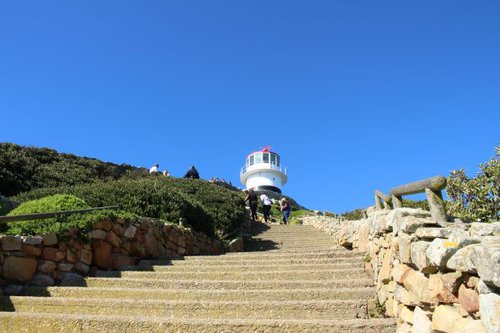
The earliest accounts of sailors attempting to reach the Far East from the European continent by circumnavigating Africa, dates back to 130 BC, but it was not until Bartolomeu Dias rounded the Cape in 1488 that a viable trade route was established.
Dias was the one to label the Cape the Cape of Storms, and with good reason. Many a ship was lost in the waters around the tip of Africa. Apart from stormy weather and heavy mist, giant waves would smash the wooden ships into unseen rocks.
Years later, the Portuguese government erected two naval beacons to commemorate Dias, and later compatriot Vasco da Gama. When lined up, the crosses point to Whittle Rock, a large, permanently submerged shipping hazard in False Bay. A lighthouse was built on Da Gama Peak in 1859, 238 metres above sea level, but it was ineffective in misty conditions. A second lighthouse was mandated and built in 1914, a mere 87 metres above sea level, and is the most powerful lighthouse on the South African coast.
Exploring these remnants from a forgotten era added an element of discovery to our day.
Funicular
We took the Flying Dutchman (not the ghost ship) to the lighthouse on Da Gama Peak. My son kept saying, “I wish we could have gone four times”. Of all the astounding sights in the Cape Point Nature Reserve, nothing matches the funicular railway trip up and down the mountain for our little adventurer. From the top station, a few flights of steps took us to the lighthouse where we were greeted by breath-taking vistas. Danger Point stood up from the water below us like a butcher’s cleaver, and in the distance, you could make out mountains overlooking Rooiels.
Restaurants and shops
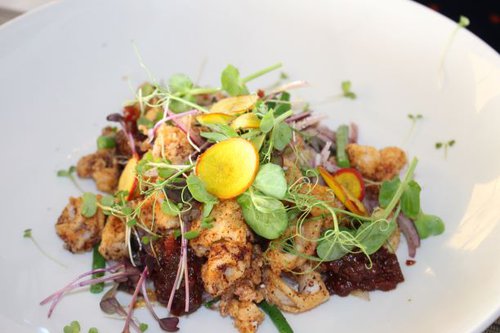
After all the excitement of riding the funicular and exploring the lighthouse and surrounds, we headed to the Two Oceans Restaurant for some inspirational fine dining. The warm enthusiasm of our waiter impressed me almost as much as the spectacular view of False Bay from the restaurant’s wooden deck. We opted for seafood and were rewarded with plates of tasty prawns, langoustines, line fish, and sashimi. By the end of the meal, the kids didn't even have room for dessert, a real first. The restaurant offers kids meals but no colouring activities or play areas- so go prepared if you have little ones.
Scenic walks
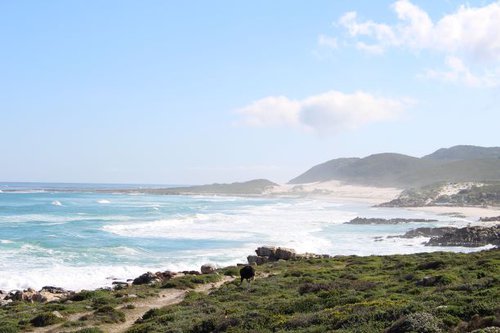
For those of us who like to explore on foot, brochures can be purchased at the Buffelsfontein Visitors' Centre. These brochures detail the six scenic walks to be enjoyed in the reserve. The hikes range from 5-km strolls to Smitswinkel View Point and Kanonkop to the two-day Cape of Good Hope trail. Once the little ones are ready to take on a four-hour walk, we will definitely be back to explore these routes more thoroughly.
Wildlife and Plants
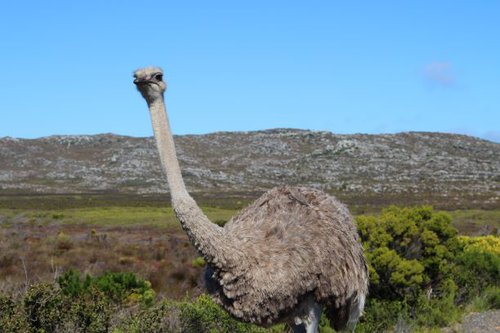
Just as we entered the Cape Point Nature Reserve, we were greeted by a particularly friendly wild ostrich. She strolled along the side of the road, stopping only to pose for a couple of pictures before continuing her walk.
We were also fortunate enough to spot a couple of the eland that roam freely around the reserve.
Between the towering cliffs and fynbos, several animals thrive on this stretch of land. Some people are lucky enough to spot some bontebok and mountain zebra, others are treated to sightings of tortoise and baboon.
The fynbos plants we encountered are part of the Cape Floral Kingdom, the smallest and most diverse of the world's biomes, and the only one to occur completely in a single country.
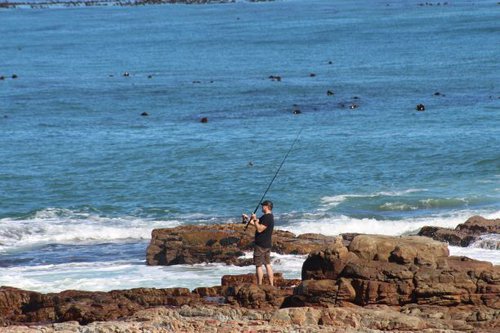
We encountered many fishermen scattered along the shore where fishing is permitted in the park (provided you have a permit). The rock pools are rich in seafood and plants that can be eaten as well.
One thing is certain, we need many more days to explore the Cape Point Nature Reserve, so we plan on staying over the next time we head down to the most South Western point of Africa. With more time to spend there, we might explore one of the many shipwrecks to be found in the reserve, swim or surf the ocean, and braai at one of the designated braai areas.
Contact details:
Telephone: 021 780 9010
Email: info@capepoint.co.za
GPS: -34.059688, 18.419877
Website: https://capepoint.co.za
It you want your own audio guide to Cape Point, you can download the app for free. For more information, go to https://capepoint.co.za/free-cape-point-audio-tour/


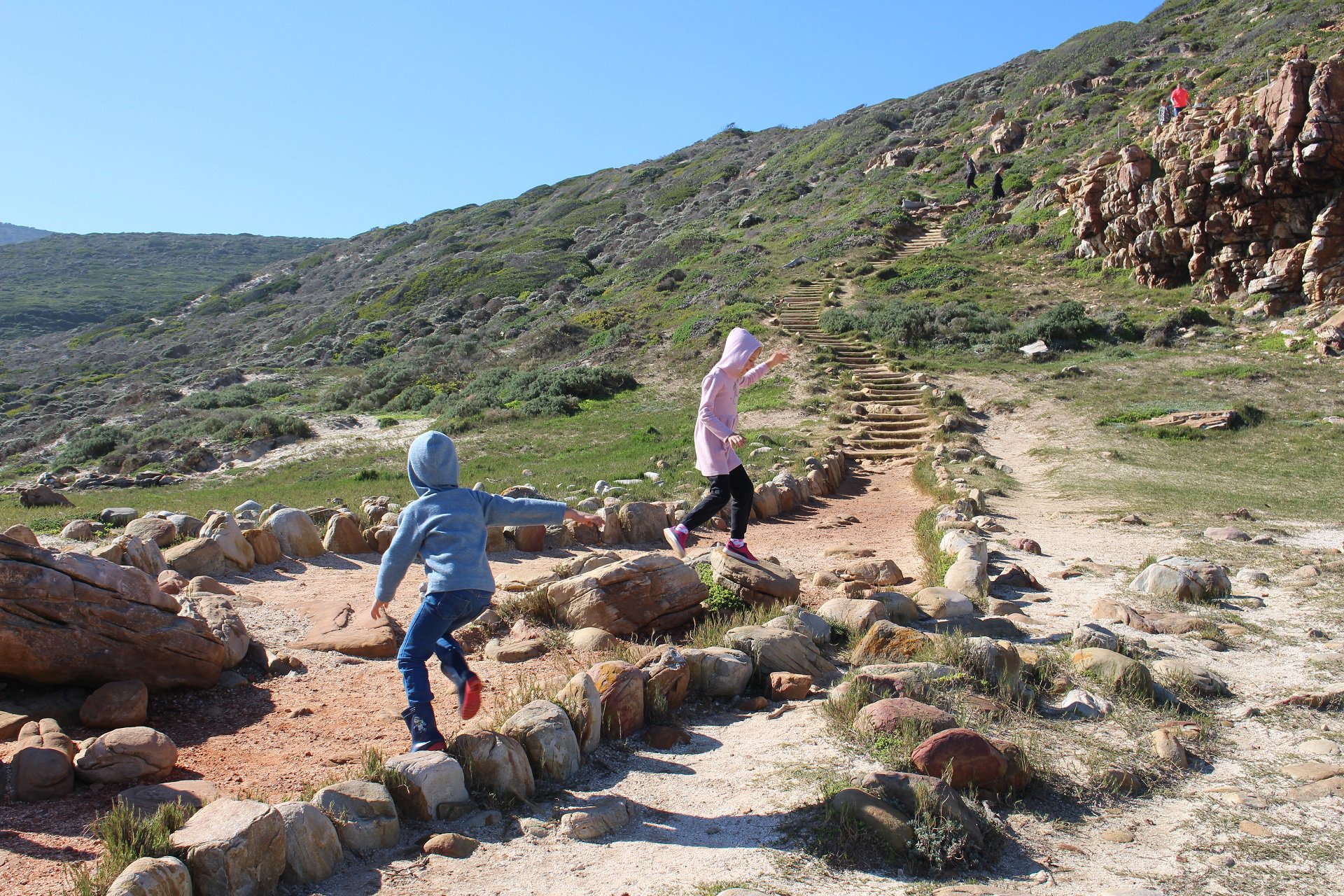








Comments (1)